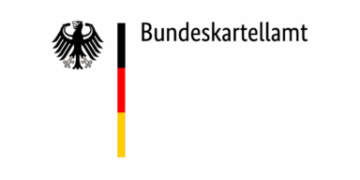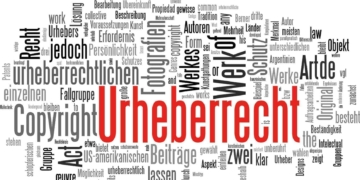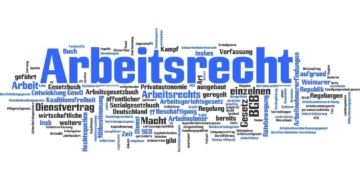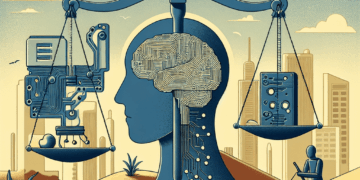Introduction
Currently, the DOSB’s decision on esport is being discussed very controversially. I would also like to take this opportunity to make a brief statement on this, with a few testimonials from both a lawyer who regularly drafts player contracts and a consultant who has helped teams professionalise, to bring in.
Unfortunately, the discussion quickly goes into what, legally and economically, is really about when it comes to the question of whether esport should be recognised as a sport, or should be equated with it.
Personally, I find it dogmatically completely irrelevant whether esport is synonymous with sport or whether it is a separate genre. Therefore, arguments do not help that chess does not contain a great movement or that archery is not very strenuous. Whether competitive gaming of computer games is classified as a sport or not, and whether it is called eGaming or esport, would be irrelevant. In fact, because in the Federal Republic of Germany we have numerous legal norms and administrative regulations that prefer sport, no matter how strenuous it is and no matter how it is organised.
Legal
According to the current legal situation, a registered association which has the promotion of esport as the content of its own statutes, as a rule, cannot be granted charitable status, as is possible for clubs that are committed to sporting activities. In case of doubt, there could even be problems for the non-profit if existing clubs, which have already been recognised as non-profit-making, also want to include an esport offer and thus, for example, appeal to the target group of young people.
This results in financial disadvantages, but above all it also affects a social problem. Anyone who has delved deeper into the world’s esports scene knows that esport as such has long been a social phenomenon that has decisively shaped society, especially the group of millennials. This goes hand in hand with the development of leisure habits of young people and children, and thus in parallel with the competition between television and streaming services. Anyone who overlooks this social development and who denies this development any relevance, even if only subliminally, has simply missed a very important social trend.
And this question is completely detached from the question of whether esport is commercially dominated (see below) or whether computer gaming could be harmful. It is quite simply a social trend that can no longer be reversed and which affects more and more social strata. Ignoring this trend by throwing legal and economic obstacles at supporters (non-profit or commercial) is evidence of either massive ignorance or ignorance of the formerly rising relevance of television or, later, the Internet. is to be equated.
Term player
This can also be seen in the provocative use of the term eGaming. Even if it doesn’t really matter what the competitive gaming of computer games is called, it just shows a lack of understanding for the underlying social development that now accompanies esports.
With the decision, the DOSB also massively ignores the developments and efforts of its own members of the Union. Hardly any football club that is not currently involved in esports, even if it is often only FIFA. Many of these clubs have recognized the trend and want to “rejuvenate” themselves with the offer of esport not only as an association, but also to take advantage of the extensive marketing opportunities and access to social media channels, through which the “classic sport” has for a while target group of 15 to 40 years is becoming more and more difficult.
Official members of the DOSB will soon be in a dilemma and will have to fight against pointless prejudices of sponsors or, alternatively, ignore enormous sales potential.
The grassroots esport is also at risk. The simplified establishment of non-profit associations or even of clubs is slowed down and the expansion of the export department and other sports clubs is sometimes hindered. This will not stop social development, but will sometimes harm the classical associations, and thus important members of the DOSB. The decision could therefore have been a disservice to some of the existing members and associations.
Assessing the arguments
However, as promised, I would also like to express my opinion directly on the DOSB’s comments and to weigh the individual arguments. Unfortunately, this is not easy, because the speeches are full of inconsistencies, inconsistencies and errors of understanding. This starts with the explanation of why the term eGaming is to be introduced. One of the main reasons is that esport would be very diverse and confusing and would range from shooters to sports simulations to card games. From the fact that I would not know of any real “esport” in the virtual skat or that it has any relevance, as well as games on tennis or archery, it is for the decision sport or not and also irrelevant for the legal explanations. The reasons why do doSB rejects esport concern both FIFA and Counter-Strike, a differentiation in this respect makes no sense, but rather testifies to the ignorance of esport and the inability to distinguish between ‘computer games’ and ‘esport’.
The latter can also be seen from the fact that it is a reason for refusal that in esport no “self-motor, sport-determining movement can be recognized as a constitutive feature”. To debunk this argument of absurdity, there is no need to point to chess or how exhausting archery really is. Rather, one only has to deal with the truly professional esport in order to learn that concentration, finger skill, understanding and endurance are very well constituted characteristics of esport, both of sports simulations and of other Play. Training strategies and concentration are highly strenuous, relevant to success and crucial for victory and defeat. For this very reason, numerous commercial providers have also formed to improve these skills, offering esports food, esports clothing and training as well as coaching. Members of the DOSB also offer all offers of the clubs from managers to physiotherapists to nutrition counselling for internal esports teams. The situation is no different for professional esports teams. A statement on this, at least in my opinion, simply could not have been based on the fact that someone from the DOSB has ever looked at professional esport at all.
The reference to the WHO assessment on the risk of addiction is also not effective. Every activity has an addictive potential and carries health risks. Playing three hours of handball every day is not really beneficial for joints and the like either. The same applies, of course, to extensive computer games. Professional teams and associations also dedicate themselves to this topic, because out of self-interest, not to speak of labour law regulations, they pay attention to a balanced time-sharing of game training, recreation and other phases. That being said, however, the potential risk of addiction by individuals is simply not a suitable delimitation of the question of whether an activity is sport or not. There are simply unfit, even unfair, comparisons being sought here.
Market orientation of esport?
The very deliberate justification for the question of market orientation is particularly obvious. While the underlying computer games are in fact commercial products of companies, market orientation is simply not a real difference to sport. In professional football, for example, there are listed companies that provide clubs, there are sponsors, professional player agents, equipment suppliers and a strong commercial focus. The professional tournaments have a much higher degree of commercialization than any single esport game has ever achieved. In the case of a FC Bayern, to speak of a common good and to use this as a suitable demarcation criterion is a formal argument.
But the question of whether license holders of the well-known esport titles are commercial companies is also not very suitable, because there is a lack of differentiation. While about 10 years ago esport and multiplayer in the day was mainly a means of retaining buyers, today’s esport has developed significantly.
Companies such as Riot have set up their own esports departments that regulate and enforce fairness, codes of conduct, funding, player treatment, as well as minimum salaries, as well as marketing measures, rules of the game and the organisation of tournaments.
Admittedly, purely theoretically, a provider of a game can also exclude players and an argument in the style of “I can play football even if the DFB does not let me be a member” is at least not completely absurd. On the other hand, the DFB and other associations also have clear rules for players, funding of clubs and the like and can impose sanctions in the event of a violation of these rules. The IOC itself has harsh rules and determines the welfare and woes of athletes, entire national federations, funding of athletes and much more. A player who violates the rules even though he hasnot even participated in them cannot pursue a professional career or must bow to certain requirements. These circumstances have caused numerous unrest at the IOC throughout the world and have led to numerous protests by athletes in the athletics federations.
Many of the top associations of the “old-served” sport can write a lot of achievements on the flag, but consistent democracy and the possibility of individual players influencing rules and procedures are certainly not part of it.
Comparison with regular sport
In sports clubs, too, athletes must adhere to rules, laws and contracts in order to gain access to events, sporting support or even training opportunities. As far as I know, there is otherwise no possibility in Germany to perform discus throwing or to pursue similar sports that require a certain amount of equipment.
It is no different for commercial providers of computer games.
If players adhere to the rules or in this case to the terms and conditions of the game providers, there is no economic reason for the providers to exclude individual players, nor – sometimes – a legal basis. There are further details, among others, the district court of Hamburg, in a judgment has just withdrawn rules of the rules of the GTC examination. However, I do not want to go beyond the scope of this comment. For more information, please do not hesitate to contact me.
Now someone can accuse me of constructing the comparison with discus throwers, because after all, anyone could jog without a commercial enterprise being able to ban it. However, the DOSB itself is not capable of distinguishing or abstracting, because its decision now applies not only to commercial providers, but also, for example, to games offered open source or to which a commercial provider is otherwise influence or can not be influenced.
This clearly shows, in my opinion, that the question of commerce and fairness, etc., may be a decision criterion as to whether a game can become Olympic or participate in similar events, but NOT whether esport as such as a sport can be to be declarad.
Differentiation
Esport is a general term and includes numerous games, activities and products. Esport cannot be generalised any more than it can be said about sport that it has to do with a ball.
The statements on rule autonomy are therefore not convincing either. Even if it is correct that in the end the game manufacturers determine a large part of the rules, there are exceptions here as well.
For example, with the often criticized “shooters” it is commonplace that different tournament providers use and enforce special rules, i.e. allow only certain maps, exclude certain weapons or heroes from use, Individualize lap times and number of laps and much more.
The manufacturers, as a rule, give the tournament providers exactly this freedom. It would be new to me that a table tennis player in the tournament can suddenly decide for himself that up to 50 points is played or that individual players who are not active in the associations would have even the slightest influence on the rules of the game or codes of conduct.
Overall, the argument also shows massive ignorance of the true conditions in esport and therefore seems very constructed.
Honesty
After all, you have to let the DOSB find honest words. The real reason for the decision may be hidden in the following words:
“With a growing eGaming market, the competitive pressure for resources that are already scarce in sport is increasing. For example, the now worryingly limited time for active sport and exercise competes with the new demands of time in the virtual worlds. In addition, the financial support of club sports is limited at all levels and is therefore already not sufficient, so that a new competitive situation would be created here.”
In reality, the DOSB is afraid of esport and hides from the above-mentioned social development. It does its members a disservice and promotes parallel developments that, in my opinion, harm rather than benefit the DOSB’s intended objective.
Conclusion
Even if there is much more to say, at some point this article must also come to an end. What is the result of the DOSB decision? Many voices say, “Why do we need the DOSB in the first place?” or “Then we do something of our own?”.
right.
And I have long argued that some people and organisations in esport are having a sham debate when too much attention is paid to the unspeakable term ‘sport’. Whether esport is sport or not is completely irrelevant. Hardly any professional esports team will be interested, it will not change the sociological development and it will not change the funding and relevance. In fact, traditional associations and clubs will only harm themselves, financially and in their credibility, if they ignore or even fight eGaming.
It is therefore necessary that associations such as the ESBD now turn around and work together with politicians to develop solutions to the legal problems surrounding the issue of visas, the facilitation of further training, subsidies and equal tax treatment.
Associations and participants in industry should move away from the sometimes dogmatic and, partly ideological, playfulness around the word “sport” and towards the real problems of industry, the lack of professionalization, the promotion of companies in the sector. and the possibility of equal treatment of registered associations. Solutions and equal treatment must also be found to put players from professional teams on an equal footing with social security institutions and thus simply respect Article 3 of the Basic Law. If these goals are achieved, it will not matter whether 500 eGaming or 500 eSports clubs are founded, because associations such as the DFB will accept the enormous development that is currently taking place in esport, at the latest if a generational changes.
I am happy to take part in the discussion and i am also available for inquiries, including legal questions.
A small update to this post can be found here.













































